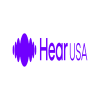A group of advisers to the Food and Drug Administration is meeting Thursday to review an application from Pfizer and BioNTech for emergency approval of their coronavirus vaccine.
Results from a large study of nearly 44,000 volunteers showed the shot to be 95% effective in preventing COVID-19, a finding that FDA scientists affirmed in largely supportive documents released earlier this week. Thursday's meeting, though, will be an important opportunity for independent vaccine and infectious disease experts to publicly vet the data gathered by Pfizer and BioNTech.
Should the committee back the companies' vaccine, an emergency use authorization from the FDA is expected to quickly follow.
BioPharma Dive will follow the meeting, which runs from 9 am to 5:15 pm, and report back here throughout the day. Our most recent updates will be posted first below:
The public comment period was punctuated by Evan Fein, who participated in the Phase 1 trial of Pfizer and BioNTech’s vaccine at New York University. He said he believes he received an active dose, not a placebo, because of mild side effects he had, and praised the clinical trial investigators who checked on his condition.
"Nothing felt rushed and I never felt like a guinea pig," he said.
In the months since, he has returned to normal activities like caring for his parents, exercising in small groups and going to his workplace in person, all of which he was doing prior to getting a shot, without getting COVID-19.
He concluded by invoking the spirit of passengers of Flight 93, who perished on 9/11 while fighting terrorists who had hijacked the plane.
"An EUA must be granted and it must be granted tonight," he said. "As of yesterday, the daily death toll for COVID-19 exceeds the death toll on Sep. 11, 2001. Delays on December 10 will mean more death on January 10. In the words of Todd Beamer, 'Let's roll.'" — Jonathan Gardner
Should trial volunteers who were initially given a placebo receive Pfizer and BioNTech's vaccine? If so, when?
Steven Goodman, a Stanford University professor, went through the many implications of these questions and the thorny ethical issues involved. Among them: Are volunteers who got a placebo, for instance, entitled to get the vaccine earlier than they otherwise would because they enrolled? Can that be done while ensuring Pfizer and BioNTech's trial — and, potentially other coronavirus vaccine studies — aren't compromised?

Pfizer and BioNTech offered one solution. They aim to give their shot to placebo patients who are eligible for vaccination according to CDC guidelines should they ask for it and then, after six months, all placebo patients.
Goodman argued, however, that while "not unreasonable," that plan would unblind all trial participants, change peoples' behavior, and "many of the benefits of randomization would be lost."
Instead, Goodman proposed an alternative, called "blinded crossover." All placebo participants would get the vaccine, and vice versa, and none would know which they received and when. Doing so, Goodman argued, would help maintain the trial's integrity and the trust between sponsors and study participants.
Panelists had several questions about Goodman's presentation. Expect a lot of discussion on the topic this afternoon. — Ben Fidler
A 30-minute break before the open public hearing portion of the meeting starts at noon.
Pfizer and BioNTech have outlined how they plan to continue the massive clinical trial that got their vaccine to this point. But the CDC is also planning to track people who receive the vaccine outside of the study, too.
Across the U.S. government, there are five passive reporting programs for side effects that will feed into the safety database for the vaccine. On top of that, the CDC is implementing an active, text-based surveillance system called V-Safe, which will look for any adverse reactions experienced by vaccine recipients who opt in, said Nancy Messonnier, director of a CDC center on vaccines and respiratory diseases.
The government also wants to confirm whether the reported 95% vaccine efficacy reported in Pfizer and BioNTech's trial will hold up under real-world conditions, as well as assessing whether the shot can prevent infection.
First up will be a study of healthcare workers that will measure the likelihood of testing positive for coronavirus among those who didn't get a vaccine compared to those who did. The CDC also plans to use government data to study disease in high-risk subpopulations, and will conduct an analysis of viral transmission and mutations as more people are vaccinated. — Jonathan Gardner
The rate of weekly hospitalizations for COVID-19 in the U.S. is higher than at any other point since the pandemic began, Aaron Hall, an epidemiologist from the CDC told the committee.
A sharp rise in hospital visits among adults older than 65 is driving this surge, Hall said, but rates are increasing across all age groups. More than 282,000 Americans had died from COVID-19 through Dec. 8.
Hall's presentation is a reminder of the stakes at Thursday's panel. Pfizer and BioNTech's vaccine, the companies' study data show, can prevent many, if not most, COVID-19 cases, and protect against the disease's worst effects.
An emergency authorization would give public health officials a powerful tool to help curb COVID-19's spread and, likely, save lives. — Ned Pagliarulo
The minute the advisory panel began, the New England Journal of Medicine published the full results of the landmark Phase 3 trial that led to Pfizer and BioNTech's approval application.
The results of the study are potentially world-changing, the first from a large placebo-controlled trial to show a vaccine could strongly protect against COVID-19.
An accompanying editorial from the NEJM's editor-in-chief, Eric Rubin, and deputy editor Dan Longo, noted the trial's limitations and questions ahead for researchers, echoing many of the same points raised by the FDA in its briefing documents. Nonetheless, "the trial results are impressive enough to hold up in any conceivable analysis," they wrote. "This is a triumph."
Rubin's input, in particular, is notable: he's a voting member of the advisory panel. — Ben Fidler

Arnold Monto, the acting chair of the advisory committee, kicked off Thursday's proceedings, which will run through the early evening if the committee keeps to their agenda.
In the morning, Doran Fink, a deputy director in the FDA division that oversees vaccines, will overview the emergency use authorization process, and a Centers for Disease Control and Prevention official will give an update on coronavirus epidemiology.
One morning presentation, from Stanford University School of Medicine Steven Goodman, should be important: He'll be discussing considerations for running a placebo-controlled vaccine trial should one be authorized for emergency use — relevant for Pfizer and BioNTech as well as other developers.
In the afternoon, we'll hear from the companies themselves and then the FDA. A committee discussion starts at 3:10, followed by voting. — Ned Pagliarulo
The advisory panel gathering virtually on Thursday is large, with 13 temporary members joining the ten who typically sit on the committee. Seven regular members, including the chair, who stepped aside because she's overseeing a coronavirus vaccine trial, are not attending.
The panelists are mostly vaccine and infectious disease experts, many of whom are from academic institutions or large medical centers. There will also be a biostatistician, an epidemiologist and industry and consumer representatives.
Several experts who attended an October advisory committee meeting on coronavirus vaccine development generally are missing from Thursday's line-up, however, noted the Project on Government Oversight.
Officials from the FDA and the Centers for Disease Control and Prevention will speak but are not on the committee. — Ned Pagliarulo
The FDA is asking panelists to vote on just one question: whether the benefits of vaccination with Pfizer and BioNTech's vaccine outweighs the risks in people aged 16 years or older.
Support from a majority of panelists, which is widely expected, would almost certainly pave the way for an emergency authorization from the agency. The FDA typically, though not always, sides with its advisory panels.
The FDA is also asking the committee to discuss Pfizer and BioNTech's plans to offer study participants who received placebo the choice to get their vaccine, should an authorization be granted. Doing so might make it harder to track the vaccine's safety and protection over time, a point on which the agency wants the committee's input.
More broadly, the panelists are asked to discuss any gaps in the plans presented to them Thursday for further evaluation of the vaccine. This point is important as responses to the vaccine in the real world could differ from the more monitored environment of a clinical trial.
The FDA analysis posted this week also suggested one vaccine dose may be somewhat effective, although less so than two. Committee members may discuss that evidence, which could be important during early roll-out of the shot. — Ben Fidler
Pfizer and BioNTech have proven that a two-shot regimen of their vaccine is strongly effective at preventing adults from developing symptomatic COVID-19, regardless of age, race or ethnicity. Data from the companies' large Phase 3 trial also indicates the shot can protect against the disease's worst effects, although the evidence is less definitive.
Crucially, vaccination appeared safe, with no serious or unexpected side effects. Most people, though, experienced symptoms like fever, fatigue and headache, particularly after the second dose.
The results are highly encouraging and are very likely enough to secure an emergency approval from the FDA. But there's a lot we still don't know, most importantly how long protection will last and whether vaccination prevents infection or asymptomatic disease.
Pfizer and BioNTech also didn't study their vaccine in many adolescents, and children were excluded from the trial. The shot isn't yet proven safe and effective in women who are pregnant or nursing, or people with weak immune systems.
While the companies' Phase 3 study was large by clinical trial standards, rare or new side effects could still emerge once the shot is given to millions of people. Within the first day of authorization in Britain, for instance, UK regulators warned people with severe allergies not to get vaccinated, after two healthcare workers had anaphylactic reactions. Such reports are likely to be frequent amid mass immunization campaigns, but many may not end up being linked to the vaccine. — Ben Fidler























